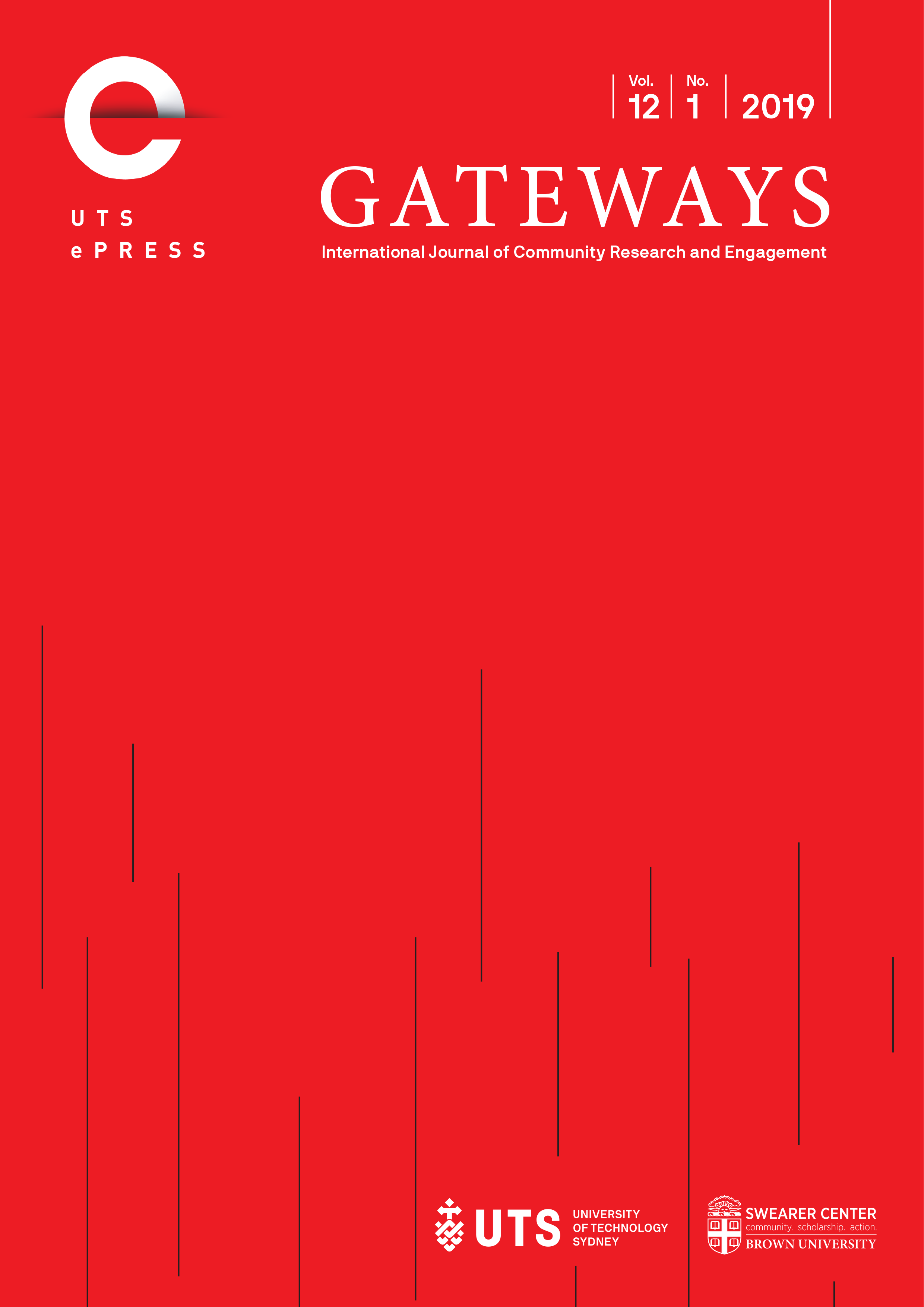Development and evaluation of a community-engaged research training program: Building capacity of Marshallese stakeholders and academic researchers to conduct health research
Main Article Content
Abstract
Pacific Islanders are a growing, yet understudied population who suffer from high rates of chronic diseases such as obesity and diabetes. Given the historical trauma experienced by Pacific Islanders, community-based participatory research (CBPR) is an appropriate way to conduct research focused on reducing the health disparities observed in this population. This paper presents the process of engaging the Marshallese community to design, conduct, and evaluate a community-engaged research training program. The goal of the program was to build the capacity of both academic researchers and community stakeholders to conduct CBPR for the purpose of addressing health disparities identified and prioritized by the Marshallese community. The program included both didactic training and experiential mentored research components delivered over a period of two years. Eleven Marshallese community stakeholders and eleven academic researchers participated in the program. Results indicated that the program successfully increased participants’ knowledge regarding the CBPR process. Groups of participants have completed exploratory research projects based on the topics identified by the community. The evaluation adds important insights to the current CBPR training literature and can inform future CBPR trainings.
Keywords
community-based participatory research, community-engaged research, Pacific Islanders, minority health, health disparities, interprofessional training
Article Details
Issue
Section
Authors who submit articles to this journal from 31st March 2014 for publication, agree to the following terms:
a) Authors retain copyright and grant the journal right of first publication with the work simultaneously licensed under a Creative Commons Attribution License that allows others to share and adapt the work with an acknowledgement of the work's authorship and initial publication in this journal.
b) Authors are able to enter into separate, additional contractual arrangements for the non-exclusive distribution of the journal's published version of the work (e.g., post it to an institutional repository or publish it in a book), with an acknowledgement of its initial publication in this journal.
c) Authors are permitted and encouraged to post their work online (e.g., in institutional repositories or on their website) prior to and during the submission process, as it can lead to productive exchanges, as well as earlier and greater citation of published work (See The Open Access Citation Advantage Service). Where authors include such a work in an institutional repository or on their website (ie. a copy of a work which has been published in a UTS ePRESS journal, or a pre-print or post-print version of that work), we request that they include a statement that acknowledges the UTS ePRESS publication including the name of the journal, the volume number and a web-link to the journal item.
d) Authors should be aware that the Creative Commons Attribution (CC-BY) License permits readers to share (copy and redistribute the work in any medium or format) and adapt (remix, transform, and build upon the work) for any purpose, even commercially, provided they also give appropriate credit to the work, provide a link to the license, and indicate if changes were made. They may do these things in any reasonable manner, but not in any way that suggests you or your publisher endorses their use.
For Volume 6 (2013) and before, the following copyright applied:
Articles published by UTSePress are protected by copyright which is retained by the authors who assert their moral rights. Authors control translation and reproduction rights to their works published by UTSePress. UTSePress publications are copyright and all rights are reserved worldwide. Downloads of specific portions of them are permitted for personal use only, not for commercial use or resale. Permissions to reprint or use any materials should be directed to UTSePress.
